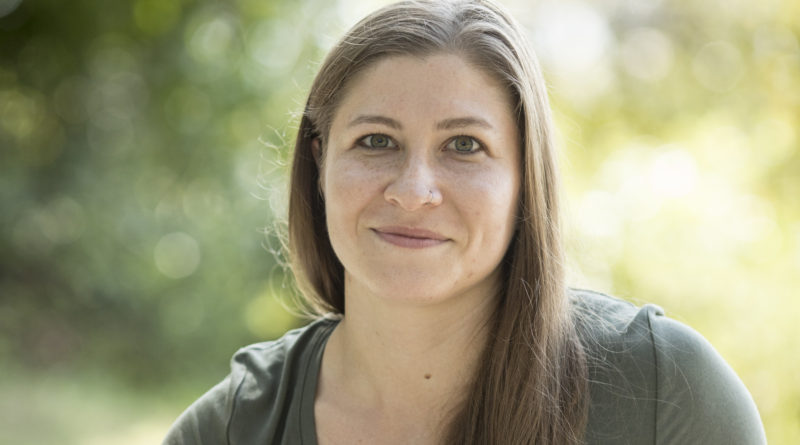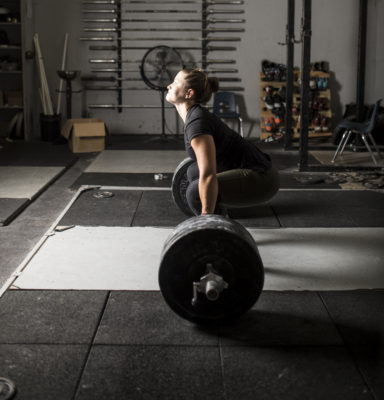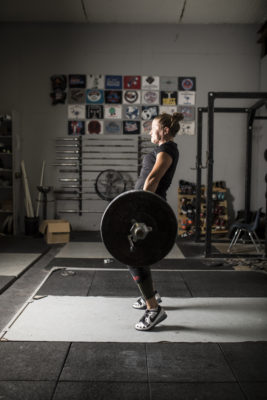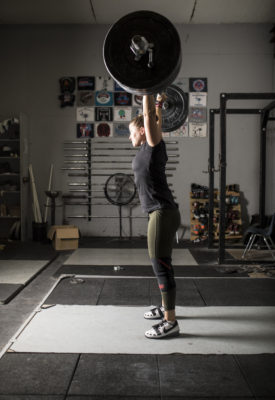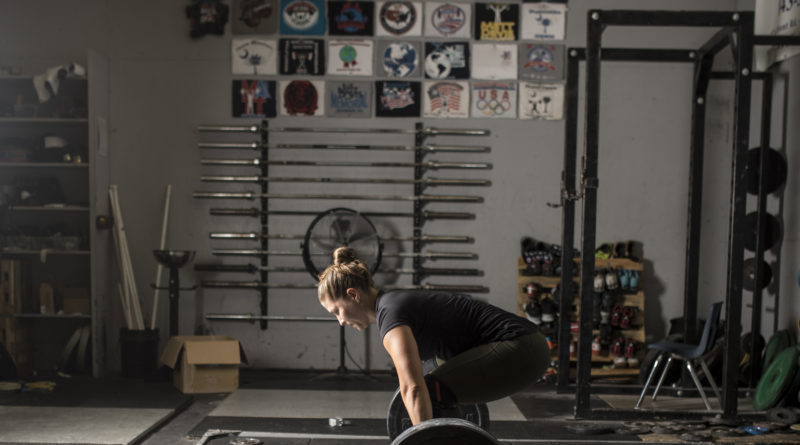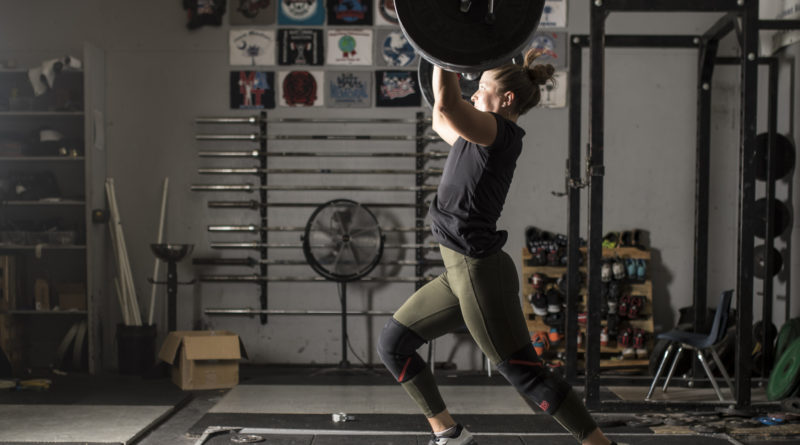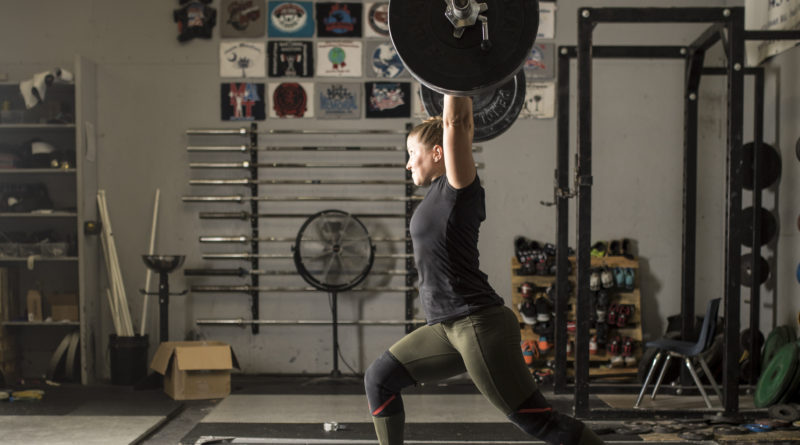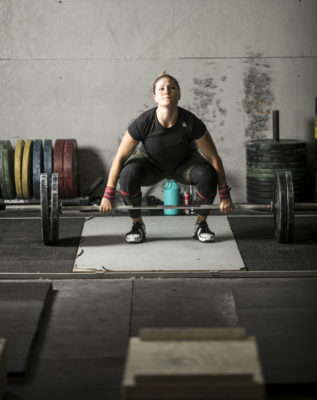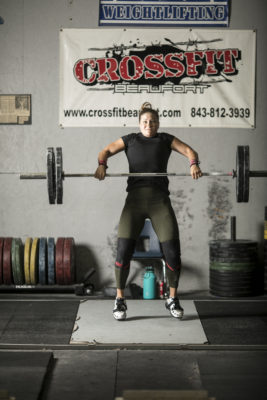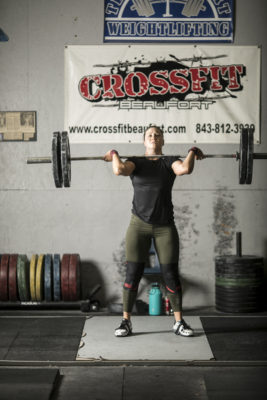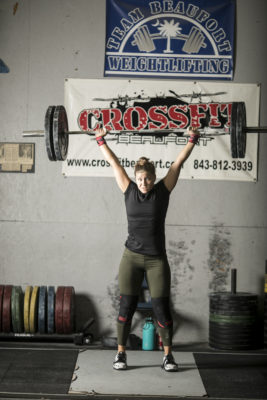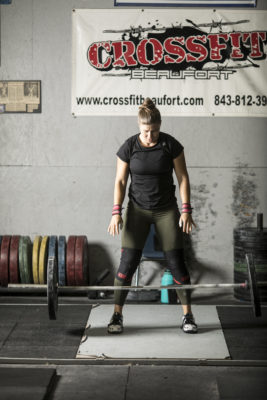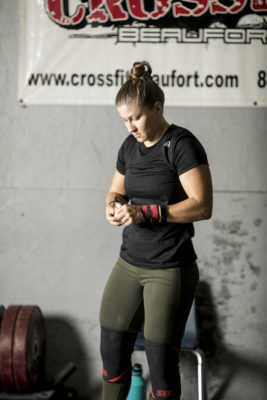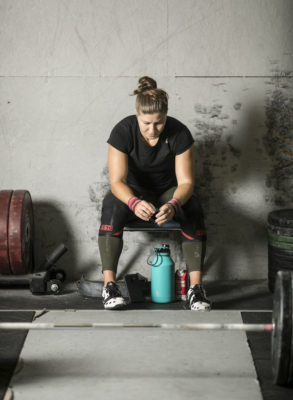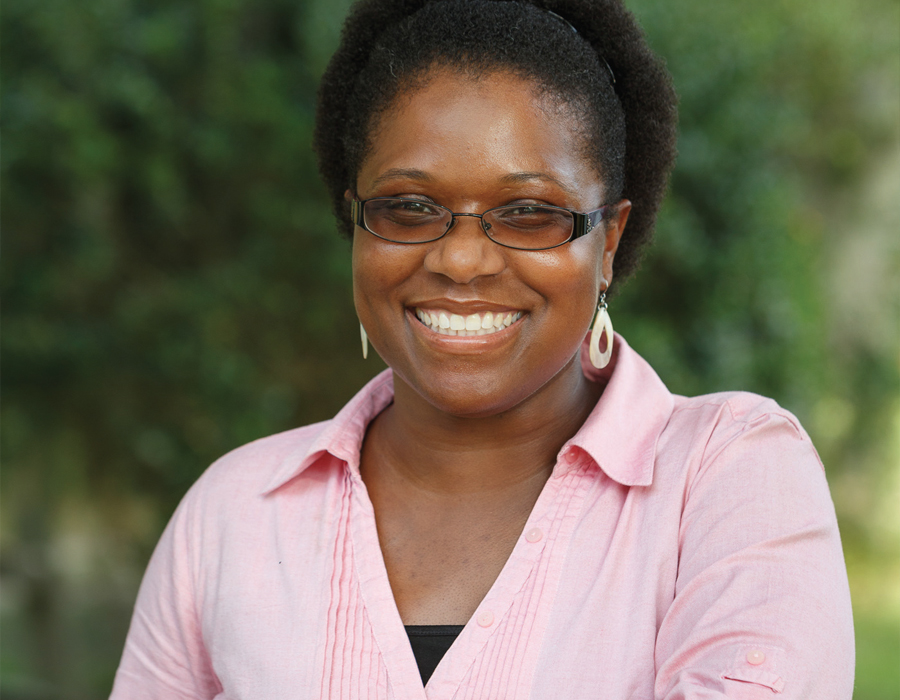Hala Fattouh
The Strength of Cedars
story by ZANE VICKERY photos by JOHN WOLLWERTH
In the fading light of a Beaufort late afternoon, Mahassen Hala Fattouh (who goes by Hala) sits clutching a steaming coffee with a demeanor reflective of the highest degree of intrepidity and stoicism. While admittedly a reserved person, the aforementioned demeanor impulses one to question what pursuit of life or level of adversity demands such a mien. With gentle expression and shrewd conviction, Hala retells an unfolding journey of self-discovery and confrontation with hardship that is unique to her, yet kindred to all who navigate the difficulties of life. Twofold, delivered with a spirit driven towards the heart of something that all of humanity is drawn to, conquering one’s own setbacks and difficulties to accomplish one’s dreams victoriously. In the words of Tennyson, “To strive, to seek, to find, and not to yield.” This is Hala’s story, a member of our community, one in pursuit of Olympic dreams and one that we all should know and esteem.
Hala’s story begins as all of ours do with the generational foundations laid by her parents. Her father, Mike, emigrated from Lebanon in the early 1970’s before the outbreak of civil war to attend Embry-Riddle Aeronautical University in Daytona Beach, Florida at the behest of his family. With plans to become a pilot, he fell victim to one of life’s beautiful realities, plans change to the bidding of the universal powers that be.
While employed at a hotel, he fell in love and married a co-worker named Susan, Hala’s mother. Susan had moved to Daytona from Michigan to live on the beach in her van “like a true hippie” Hala says, and subsequently met Hala’s father while employed at the Hilton, which remains in operation to this day. After their marriage and relative establishment in Florida for the foreseeable future, Hala and her sister were born into a childhood immersed in time at the beach and horseback riding. It was upon this strong familial backbone that Hala would begin to search for her passions and pursuits.
Hala took an architecture drafting class taught by assistant weightlifting coach at her high school. With a hesitancy towards team-related sports due to performance related criticism and social anxieties, Hala was encouraged by her teacher and a friend to pursue weightlifting. As her friend stated, “ If you’re good, you compete. If not, you still look good on the beach. Go for it.” It was apparent rather quickly that Hala had a gifting and natural affinity towards the sport. Through this immersion, Hala was introduced to Olympic-style lifting by the same coach to supplement her practices, specifically the snatch. With natural strength and hunger for improved technique Hala states it was “the sport I fell into”. As additional motivation, she also states that “it was nice to beat the boys.”
Hala’s parents were surprised by her newfound outlet. Not because of the sport itself, but rather that weightlifting puts the competitor in the spotlight and observation that Hala was keen to avoid most of her life. Regardless of that paradox, they encouraged her to pursue it to the fullest.
Hala’s development rapidly accelerated to propel her to be a state champion in Florida in a relatively quick amount of time in the categories of bench press and clean and jerk as a junior. Her senior year, she elected to forgo competing for the high school team to focus entirely on Olympic style lifting to progress in it and hopefully earn a scholarship to allow her to lift and attend school while doing so.
Hala eventually earned a roster spot on a youth Pan-American squad representing the United States and competing internationally, earning bronze amongst said representation in Ecuador in clean & jerk. This continued until Hala was nineteen, when she encountered a frustrating time as a competitor. She plateaued and saw very little improvement despite a hard training ethic and deemed time away from the sport the best salve for stagnant growth and waning love for it.
She made a return to lifting in 2010, on the cusp of marrying her husband Ryan (a fellow distinguished lifter in the 56 kilo class). In the wake of the wedding, Ryan and his cousin assumed the mantle of becoming Hala’s coaches, in turn sacrificing every spare moment to be present for each practice and competition. This was no insignificant transpiration of events, but equally matched by the remarkable revelation that in returning to lifting, Hala’s numbers had improved to a level that was better than when she had stopped altogether.
Yet, as often is the case with life, new promise came hand in hand with adversity. Hala began to struggle with injuries set in motion by previous injuries in her career, including a car accident, and as a result in issues epicentered around technique. Olympic lifting is highly technical, and bad habits were amok as the result of inattentive coaching early on and as Hala puts it “mistakes on my part.”
In 2014, Hala discovered that because of her Lebanese heritage, she could explore pursuing lifting to represent Lebanon on the international stage. Being a small country, Lebanon does not have nearly a comparably sized lifting program as the United States does. However, in the categories of national pride in the sport, it may indeed rival that of the U.S. Lebanon has one medal in its Olympic history. And it belongs to the sport of weightlifting, accomplished in the 1970s. It was upon this revelation, that Hala decided to turn down opportunities with team USA, represent Lebanon, and chase making an Olympic run.
At the 2016 Asian Championship, the familiar faces of disappointment and adversity returned as Hala failed to qualify for the Rio Olympics. Three months prior, Hala had been debilitated by a back injury that was properly rehabbed, only to be reinjured three weeks before the competition. “I couldn’t bend over and reach my toes and it felt as if my shot, at least at these Olympic games, was done.” She states, “ I was in a position that if I hit my best numbers, that probably would have been enough. The day before I re-aggravated the injury, I hit those numbers, which made being so close so disappointing.” She also says, “My spirit was broken before even arriving to compete.”
Whereas many would be crippled by defeat to others and oneself, Hala saw this as an opportunity to self-reflect, confront hard truths in her training and development, and ultimately make the call that if she were to see her Olympic dreams come true, a change would need to be made. She blamed her injury and re-injury as a result of poor decisions that needed something redemptive. Through doorways opened in the international weightlifting community, Hala was given an opportunity to go to Lebanon to train under the renowned tutelage of Souheil Kaissai, an internationally well-respected man in the sport. Kaissai, for a month, helped navigate changes in foundation and technique that Hala and her team “had never even considered.” One month to break eleven years of “bad habits.”
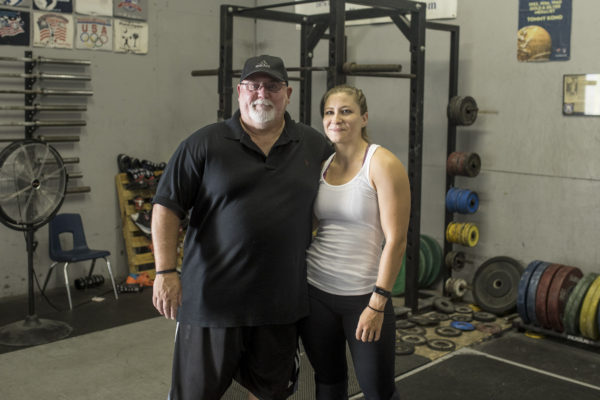
Months and years of self-funded travel and competition, as well as newly cemented technique and confidence, have led Hala to train in Beaufort as she is gearing to make a run at qualifying for the 2020 Tokyo Olympics. Following Lebanon, Hala still did not see the results that she wanted to, leading to a self imposed ultimatum of making a dramatic training shift or quitting outright. She chose the former, leading her to train with Beaufort resident and esteemed trainer Ray Jones. Jones offered a spectrum of coaching wealth that enticed Hala, including accessory shoulder/core strength and perhaps most importantly, athlete health and longevity. “Ray is one of the best, if not the best, lifting coaches in America.” She relocated in September 2017 to begin her regimen, with her husband remaining in Florida to help support her dream and consistent commutes are regular for the two. She says, “the situation and distance are not ideal, but the experience has been more than worth it.” She was also generously surrounded by an immediate village of supporters, spearheaded by Dave and Marissa Hardie, who she calls family now, to ease the transition.
Hala is now poised to compete at the World Championships in Thailand the dates of September 17-22 in the snatch and clean & jerk. Her competition personal records of 95 kilos (209.4 lbs) in the snatch and 123 kilos (271 lbs) in the clean & jerk put her in a promising position. She confidently says, “I feel good and try not to worry about it.” The World Championships will be Hala’s best shot to qualify for the Tokyo Olympics for Lebanon and we should be proud as a community that one of our own is in such a position to do so.
Out of all of her noteworthy accomplishments, Hala finds utmost joy in the support system and love that has been given to her through every valley and peak moment by her husband, coaches, and friends. Reciprocally, that joy fuels her continued hunt of excellence, improvement, and accomplishing her dreams in the face of adversity and challenge. How fortunate indeed, that this spirit is one that resonates within the heart of each and every human being and that we have stories like Hala’s to remind us in our own pursuits “to strive, to seek, to find, and not to yield.”

